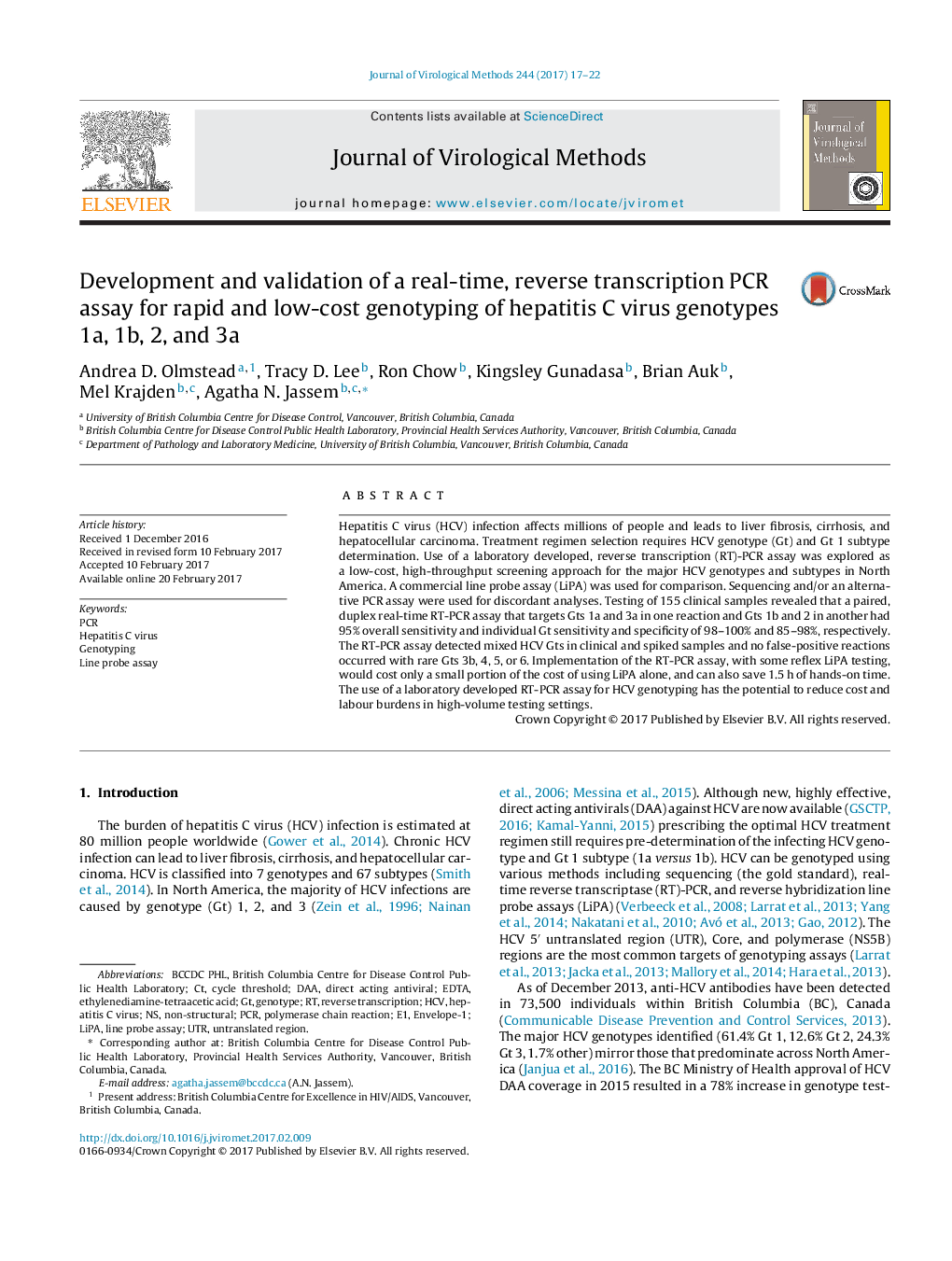| Article ID | Journal | Published Year | Pages | File Type |
|---|---|---|---|---|
| 5672964 | Journal of Virological Methods | 2017 | 6 Pages |
â¢A real-time PCR assay for HCV genotypes 1a, 1b, 2, 3a was developed.â¢The assay has an overall 95% sensitivity and detects mixed genotype infections.â¢No false positive reactions were observed with rare HCV genotypes 4, 5 and 6.â¢The assay costs a fraction of a commercial one and saves 1.5 h of hands-on time.â¢This rapid, low-cost strategy addresses the burdens of genotyping in North America.
Hepatitis C virus (HCV) infection affects millions of people and leads to liver fibrosis, cirrhosis, and hepatocellular carcinoma. Treatment regimen selection requires HCV genotype (Gt) and Gt 1 subtype determination. Use of a laboratory developed, reverse transcription (RT)-PCR assay was explored as a low-cost, high-throughput screening approach for the major HCV genotypes and subtypes in North America. A commercial line probe assay (LiPA) was used for comparison. Sequencing and/or an alternative PCR assay were used for discordant analyses. Testing of 155 clinical samples revealed that a paired, duplex real-time RT-PCR assay that targets Gts 1a and 3a in one reaction and Gts 1b and 2 in another had 95% overall sensitivity and individual Gt sensitivity and specificity of 98-100% and 85-98%, respectively. The RT-PCR assay detected mixed HCV Gts in clinical and spiked samples and no false-positive reactions occurred with rare Gts 3b, 4, 5, or 6. Implementation of the RT-PCR assay, with some reflex LiPA testing, would cost only a small portion of the cost of using LiPA alone, and can also save 1.5Â h of hands-on time. The use of a laboratory developed RT-PCR assay for HCV genotyping has the potential to reduce cost and labour burdens in high-volume testing settings.
